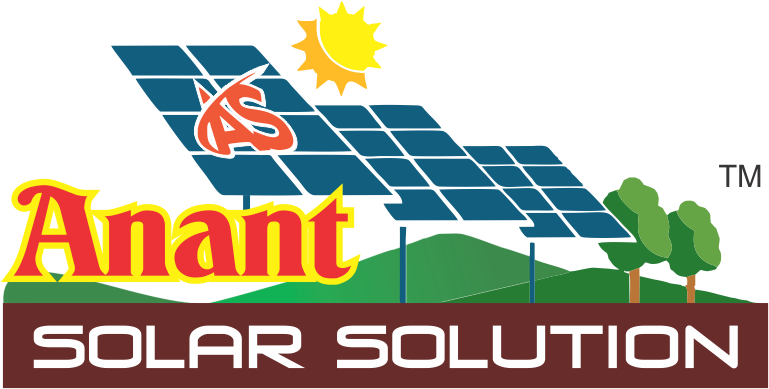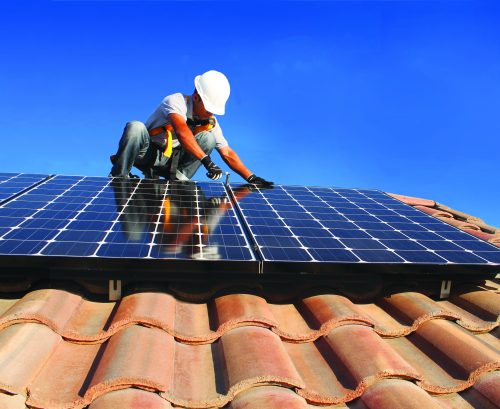Rooftop Solar Systems also known as Rooftop Solar Power Plants, which is an alternative form of Renewable Energy, is now readily being accepted and adopted for generating electricity by urban and rural population
Solar Energy is by far the most abundant Renewable Energy Source which is the reason behind it gaining popularity in cities and villages alike. Millions of homes and residential complexes are now installing Rooftop Solar Panels which are ideal for harnessing the abundant solar energy for power generation. Read below to know more about how to install Rooftop Solar panels for Home or Residential Use.
Installation requirements
To install Rooftop Solar System, the following criteria need to be met:
- The dimensions and the structure of the roof are crucial for feasibility of Rooftop Solar Power Panels. The ideal scenario if solar panels should be installed facing the south.
- A minimum of 100 square feet area is required at the roof for installation of solar panels producing power up to 1KW.
- The standard equipment as per the norms of MNRE/TSSPDCL/DISCOM shall only be installed to avail subsidies or grid-connectivity.
- The consumer shall have 1 phase/ 3 phase supply service connection.
- A single Bi-Directional Net-Meter shall be installed for export and import of power
Cost of Rooftop Solar on Grid System from 1-10 KWp with Subsidy


How it Works

How it Works
1. The mechanism of working of the solar panels is that it absorbs the sunlight as a source of energy and then converts it into electricity.
2. The solar panels are composed of many solar cells – which are photovoltaic (PV). This is the reason why solar power panels are also referred as solar PV panels
3. It is these panels that absorb sunlight
4. Once solar energy is completely absorbed, a chemical reaction is triggered within the solar cells which release electrons coverts solar energy into direct electric current (DC)
5. An inverter then converts Direct Current produced by the solar panels to Alternating Current (AC) used in homes/residential buildings, as majority of household devices run on Alternative Current
6. A bi-directional meter measures energy used and excess energy produced
7. Excess electricity is fed to the grid
Types of Solar Power System

ADVANTAGES OF SOLAR ROOFTOP
- Idle rooftop space utilization
- Cheaper Electricity
- Reduced power bills
- Clean, green energy generation
- Free from power cut problems
- Additional revenue
ON-GRID/GRID-TIED/NET-METERING
On-Grid Rooftop Solar Systems can actually reduce your monthly electricity bill! Since on-grid systems are incorporated with main grid supply, the power generated using solar energy during the day can be used and consumed by powering appliances and devices in homes as per the need. The excess solar electricity produced can be fed back to the grid. During night hours or cloud cover, the power can be drawn from the grid.
The grid-tied solar systems work on Net-Metering technology. In such systems, a Bi-Directional electricity Net-Meter installed in your homes or residential complexes records the power used, excess power exported to the grid and power imported from the grid.
If the electricity import from the grid, besides your power consumption from the solar electricity is more, you pay to the electricity board. But if the export of your solar power to the grid exceeds at the month-end, the board pays you the compensation.
The On-Grid Rooftop Solar Systems allow use of grid supply when Solar Power is not able to generate required electricity – during night or cloud cover. Otherwise, you can easily consume power without using grid supply and thus cut down on your electricity expenses.
Interestingly, this system can not only help you reduce your electricity bill but can help you earn money.

OFF-GRID
Rooftop Solar Panels can either be grid-connected or off-grid. The ‘off-grid’ Rooftop Solar Systems are not linked to the main grid but with battery storage. The electricity generated by the solar panels is stored in the battery system attached to the panels. This stored electricity can then be used to operate household devices and appliances.
The off-grid Solar Systems run by their own battery making it extremely reliable source of power. The main advantage of such a system can be advocated by the fact that it makes you independent of power cuts. Off-grid system comes to the fore during load shedding or when living in remote areas where power cut is quite frequent.



